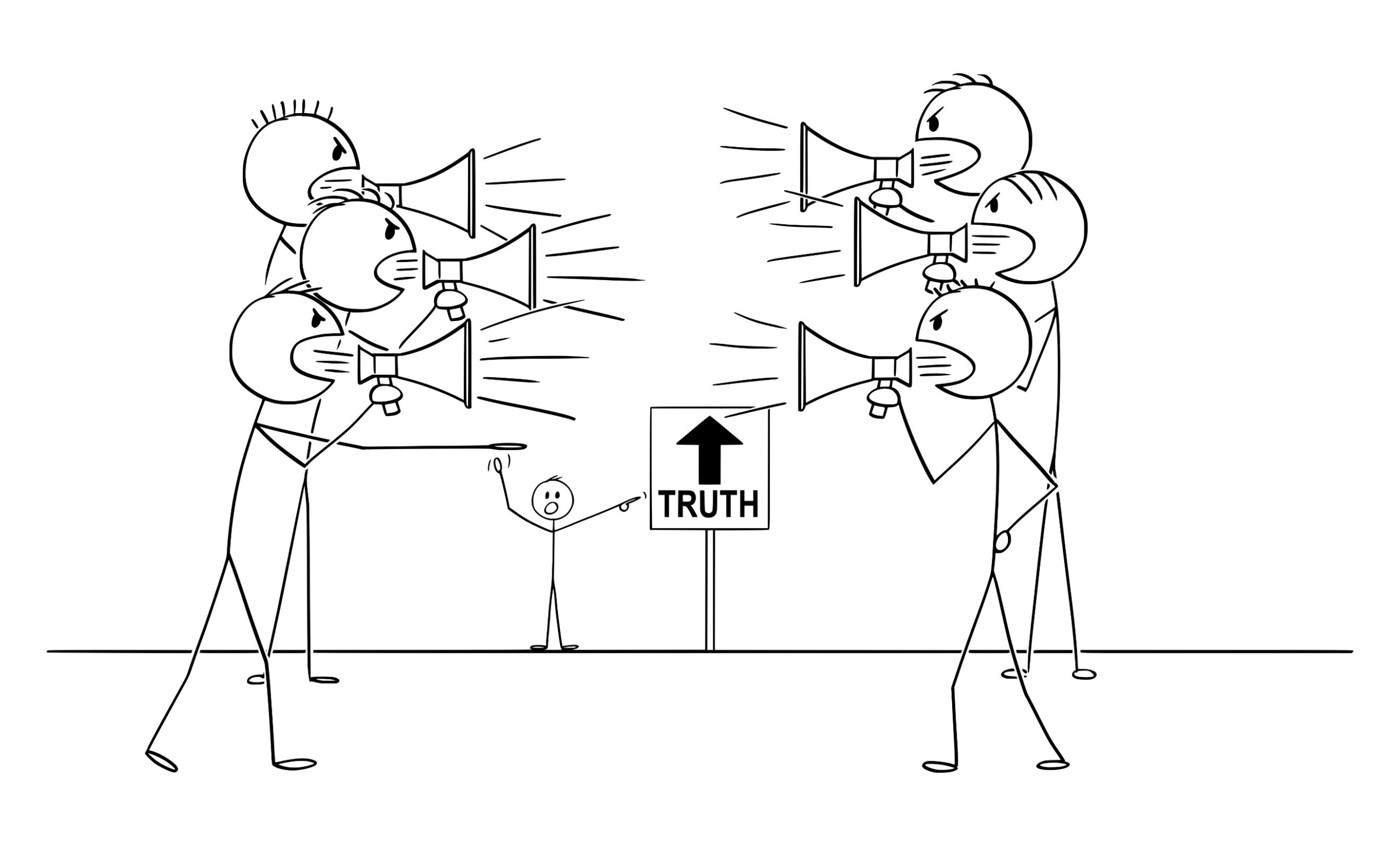A few weeks ago, while climbing with my husband, I ventured onto a route I had led multiple times in the past, without issue. I got to the crux and couldn’t see any holds past the bolt I had just clipped. I panicked, anchored into the bolt, pulled my trusted stick clip off my harness, and used it to clip my rope into my next bolt. That way I could safely navigate the next section on top rope. Of course, once I started climbing again, I found every hold and easily climbed through the crux, just as I had done many times before.
I came down totally frustrated that I couldn’t see the holds when I was on lead. But, once on top rope, all the holds and the path upward were clearly visible. My fear blinded me to the holds right in front of my face. The truth is, there were holds available. My emotions lied to me and told me there was nothing to hang onto and I couldn’t proceed.

I don’t know about you, but I feel like my emotions lie to me a lot. Joyce Myers says, “My feelings are emotions—they are not reality.” But how do we define reality? How do we define truth.
In a Psychology Today article. Dr. Neel Murton says, “The truth of something lies at the end of our inquiry into that thing. But as our inquiry can have no end, the truth of something can never be more than our best opinion of that thing. If best opinion is all that we can have or hope for, then best opinion is as good as truth, and truth is a redundant concept.”
Michel Foucault, a French 20th Century philosopher, believed that truth may not reflect biological, let alone metaphysical realities. Instead, different societies had their own, “regime of truth,” based on what society and the government perceived as truth. Foucault concluded that, “truth” is “a system of ordered procedures for the production, regulation, distribution, circulation and functioning of statements”; it is linked “by a circular relation to systems of power which produce it and sustain it, and to effects of power which it induces, and which redirect it”.
His fifth “Regime of Truth” category was: “the techniques and procedures which are valorized for obtaining truth”; and “the status of those who are charged with saying what counts as true.” Dictionary.com defines the word valorized as, to “raise or fix the price or value of (a commodity or currency) by artificial means, especially by government action. I found his choice of words interesting. Think about it. A value that is raised or fixed by artificial means, especially by government action, is a mechanism for determining truth.
This is all fancy talk that points to truth as fluid, based on who’s in power and what society deems to be true, moral and just. If truth is fluid, how do we know we are living and walking in it? How do we really know what is moral, true, and just if it can change based on who’s in power or what a social media influencer says.
It is obvious how philosophies like existentialism have permeated our schools and society today. What was considered right and moral yesterday has been turned upside down today. The profit Isiah talked about what society would look like as we approached Jesus’ second coming, and the End Times. In Isiah chapter 4, verse 20 he said, “They say that what is right is wrong and what is wrong is right; that black is white and white is black; bitter is sweet and sweet is bitter.” I don’t know about you, but that sure sounds familiar to the times in which we live.

With all these different “truths,” bombarding us today, how do we determine actual truth? Where can we turn when searching for what is right, pure and true? For me, I find truth in my personal relationship with Christ, and the Word of God, the Bible. Here are three reasons you can turn to God and his Word when searching for truth:
- God is Perfect and His Word is True
Psalm 18:30 says, “This God—his way is perfect; the word of the Lord proves true; he is a shield for all those who take refuge in him.” We have a perfect Father, who loves us unconditionally. It is impossible for a perfect, loving Father to lie. We can always trust what He says both in His Word, the Bible, and what he reveals to us through the Holy Spirit. - God is Eternal and Unchanging
Mathew 24:35 says, “Heaven and earth will pass away, but my words will never pass away.” God will never change. He is the same today as he was yesterday, or two thousand years ago. His positions on the tough topics our society is grappling with today does not evolve and change with government mandates and societal views. What He has outlined for us in Scripture is just as true for us today as it has always been. - God has provided a blueprint of truth.
2 Timothy 3:16-17 says, “All Scripture is breathed out by God and profitable for teaching, for reproof, for correction, and for training in righteousness, that the man of God may be complete, equipped for every good work.” If God is perfect, unable to lie, eternal and unchanging, we can trust the Bible in its entirety. It is a blueprint on how we are to live our lives and His eternal plan for our salvation.
Last Summer, our theme was, “hope.” God has impressed upon me that this Summer our theme should be, “truth.” A type of truth that can be found only from God, His Word, and a personal relationship with Jesus Christ. It is essential for bringing the hope, peace and healing we all desire. For this devo, I wanted to lay the groundwork on why this is such an important topic. To wrap it all up, I will end today’s devo with one final scripture. In John 8, verses 31b – 32, Jesus declared, “If you abide in My word, you are My disciples indeed. And you shall know the truth, and the truth shall set you free.” My prayer for each of you today is that you may know the truth found in Scripture, and the life-giving power that comes only through a personal relationship with Jesus Christ.
____________________________
References:
- What is Truth, An overview of the philosophy of truth, Neel Burton M.D. https://www.psychologytoday.com/us/blog/hide-and-seek/201808/what-is-truth
- What is a “Regime of Truth:? (2014), Clare O’Farrell, https://michel-foucault.com/2013/10/31/what-is-a-regime-of-truth-2013/
- Questions: What did Jesus mean when He said, “Your word is truth” in John 17:17, https://www.gotquestions.org/your-word-is-truth.html
